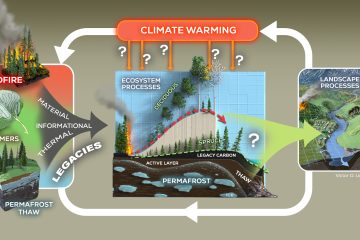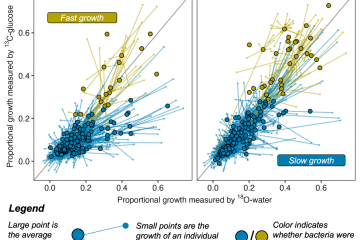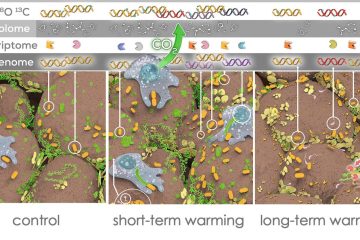Effects of experimental warming of air, soil and permafrost on carbon balance in Alaskan tundra
The carbon (C) storage capacity of northern latitude ecosystems may diminish as warming air temperatures increase permafrost thaw and stimulate decomposition of previously frozen soil organic C. However, warming may also enhance plant growth so that photosynthetic carbon dioxide (CO2) uptake may, in part, offset respiratory losses. To determine the effects of air and soil warming on CO2 exchange in tundra, we established an ecosystem warming experiment – the Carbon in Permafrost Experimental Heating Research (CiPEHR) project – in the northern foothills of the Alaska Range in Interior Alaska. We used snow fences coupled with spring snow removal to increase deep soil temperatures and thaw depth (winter warming) and open-top chambers to increase growing season air temperatures (summer warming). Winter warming increased soil temperature (integrated 5–40 cm depth) by 1.5 °C, which resulted in a 10% increase in growing season thaw depth. Surprisingly, the additional 2 kg of thawed soil C m−2 in the winter warming plots did not result in significant changes in cumulative growing season respiration, which may have been inhibited by soil saturation at the base of the active layer. In contrast to the limited effects on growing-season C dynamics, winter warming caused drastic changes in winter respiration and altered the annual C balance of this ecosystem by doubling the net loss of CO2 to the atmosphere. While most changes to the abiotic environment at CiPEHR were driven by winter warming, summer warming effects on plant and soil processes resulted in 20% increases in both gross primary productivity and growing season ecosystem respiration and significantly altered the age and sources of CO2 respired from this ecosystem. These results demonstrate the vulnerability of organic C stored in near surface permafrost to increasing temperatures and the strong potential for warming tundra to serve as a positive feedback to global climate change.


